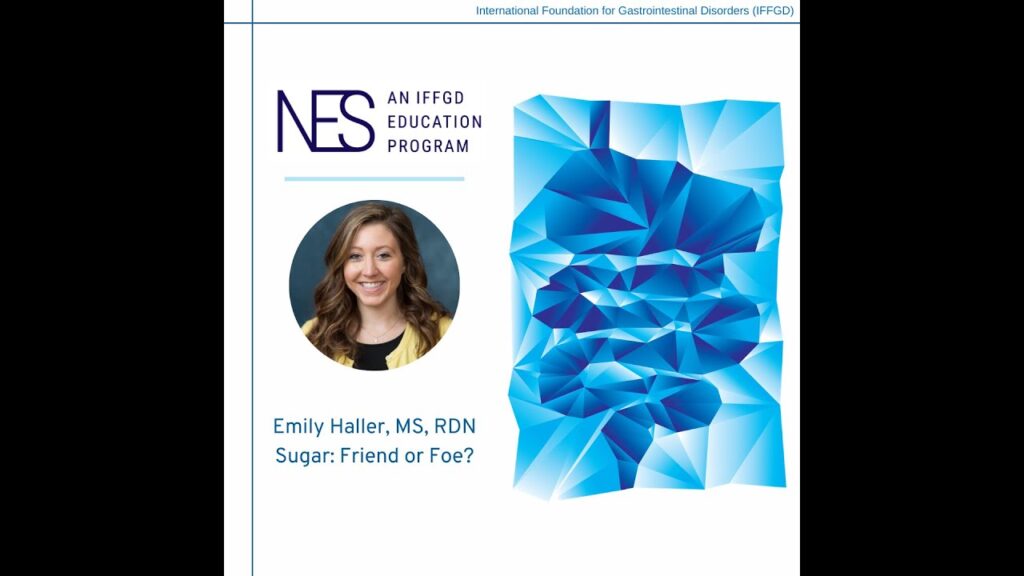What is the Difference in a Food Allergy and Intolerance?

Watch this episode of the IFFGD series, 5 Minutes in GI, to hear Christine Scarcello, MS, RD, CNSC answer the question What is the Difference Between a Food Allergy and a Food Intolerance? To learn more about Christine Scarcello, MS, RD, CNSC visit https://iffgd.org/resources/dietitian-listing/christine-l-scarcello/ Read More about Food Allergy and Intolerance Check out https://iffgd.org/gi-disorders…
409- Working With Your Healthcare Provider
Working with your healthcare provider can help make managing your condition easier A partnership between a patient and healthcare provider is essential when managing all chronic illnesses. Because the time spent with your healthcare provider is both limited and valuable, you can maximize it by following some simple guidelines before and after the visit. Learn […]
421- Personal Daily Diary for All GI Disorders
How can using a personal daily diary for symptoms help when monitoring your GI Disorder? Using a Personal Daily Symptom Diary for 2–4 weeks can help you learn more about how your body may be reacting to certain things in your life, such as diet, exercise, stress, and sleep. A Daily Diary aims to help […]
Erica Jackson

218- Why Does Milk Bother Me?
Lactose intolerance is the inability or insufficient ability to digest lactose, a sugar found in milk and milk products.
116 – Doctor – Patient Communication
Functional GI disorders present a special challenge to the doctor-patient interaction for several reasons. First, functional GI disorders are characterized, in most cases, by vague symptoms of variable intensity. Many times, these symptoms involve the most intimate anatomic areas of the body. The sensitivity of these issues can complicate the task for the patient who needs to express them in terms that the physician can interpret to formulate a diagnosis. Secondly, the physician is hampered by the absence of obvious structural lesions that often lessens the likelihood of devising a specific medical intervention that is successful. In some cases, the physician’s own anxiety can be increased by the lack of a symptom complex that leads to well-understood disease entity, such as parasites or lactose intolerance. This deficiency, in turn, often leads both physician and patient to over-investigate the symptoms. So what are the ingredients that comprise successful doctor-patient communication about the functional GI disorders?
221- The Medical History: How to Help Your Doctor Help You
The most important interaction between patient and doctor is the medical history. Through listening to the story of the patient’s illness and asking relevant questions, a physician may often make a diagnosis, or at least begin to understand the nature and location of the complaint. A few easy steps can help make this process more efficient leading to prompt, more precise diagnosis and treatment. Revised January 2012.
231 – Can Intense Exercise Lead to GI Symptoms?
Can exercise be linked to GI symptoms such as diarrhea or heartburn? This article will help you understand how exercise and associated factors can influence the GI tract.
206 -Health Reporting in the Media: What to Believe?
Most people learn of medical progress through the media. Yet this news is often unhelpful. Exaggerated cures, contradictions, and plainly misleading information can do harm. The problem is not science, but how journalists report it, and how the public interprets it. This essay aims to help readers make sense of health news. Reviewed 2009.
Choosing Apps for Managing Chronic GI Illness

In this episode of Exploring Gut Topics, we speak with William Chey, MD, Satish Rao, MD, and Amanda Lynett, RDN, to discuss apps designed to help patients manage chronic gastrointestinal illnesses and monitor GI motility. IFFGD does not endorse any of the apps listed below; however, we want patients to know what apps are available […]
Is Sugar Your Friend or Foe?

Is Sugar Your Friend or Foe? Emily Haller, MS, RDN Sugar: friend or foe? In this session, Emily Haller, MS, RDN, explores the role of sugar in our diet and its impact on gastrointestinal (GI) health. Emily also explores common sugar intolerances, including sucrose, maltose, and starch digestion issues, as well as conditions like congenital […]













